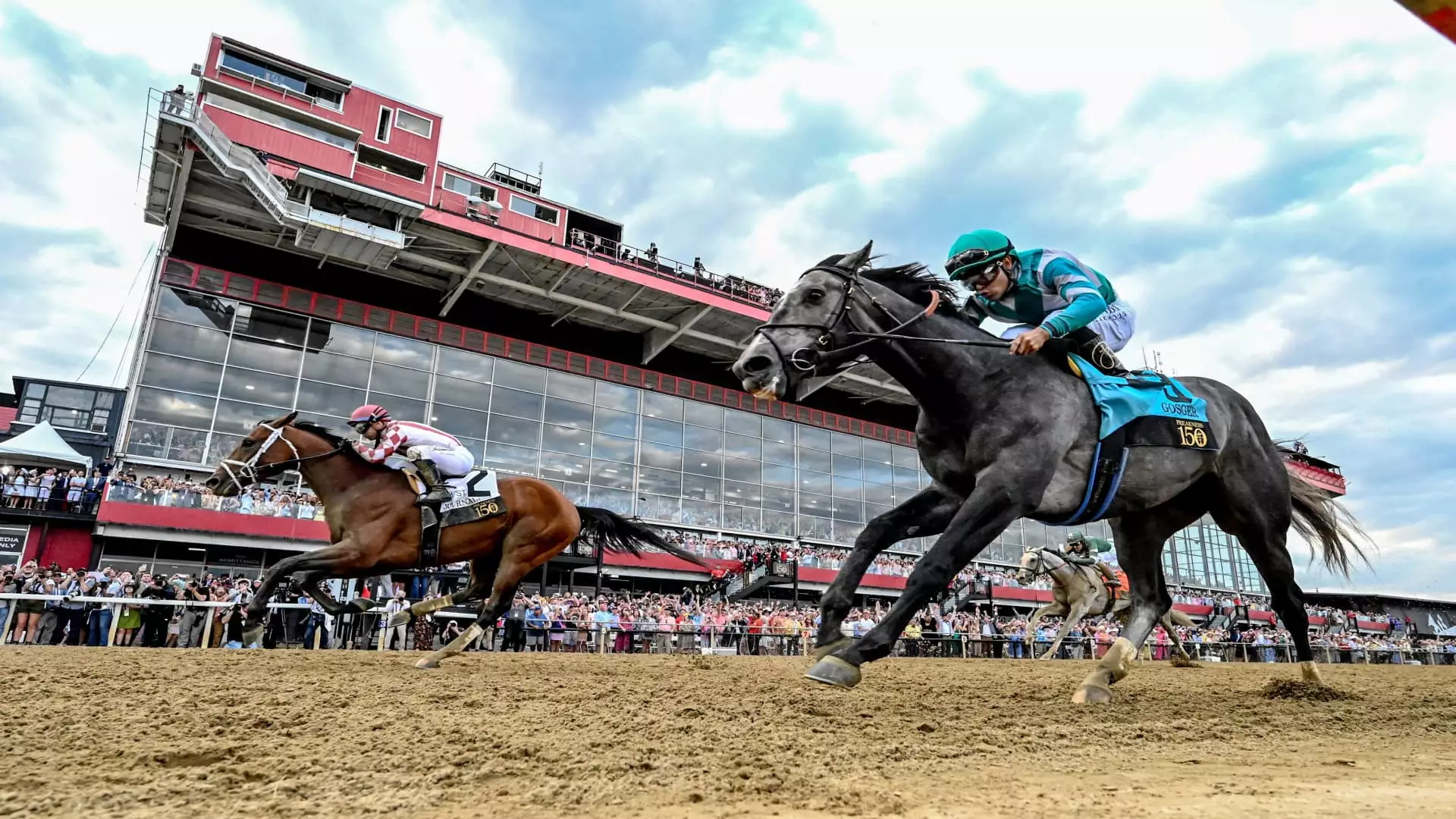In an arena where the stakes are laced with high expectations and the spirit of competition thrives, Journalism has defied all odds in the latest leg of the Triple Crown—the Preakness Stakes. After a narrow second-place finish at the Kentucky Derby, the horse entered Pimlico with heavy hearts but also buoyed by the hope of reclamation. Yet, as the race began, it seemed those aspirations might slip away once more. Trailing by a staggering five lengths, with competitors peeling away effortlessly, the odds of Journalism making a noticeable impact appeared almost impossible.
However, this situation starkly reflects much deeper themes that resonate within the realm of life itself, where every setback can feel terminal yet can just as easily blossom into an unexpected resurgence. As Journalism struggled at the back of the pack, it elicited a mirrored frustration within its trainer, Michael W. McCarthy. Amid defeatist thoughts, McCarthy’s declaration of pride in his horse’s effort was not just a resignation—it was a testament to the character that echoes the heart of competitive endurance.
The Chaos of Competition
The Preakness became a cacophony of clashing hooves, jockeys maneuvering tightly on the course, and the palpable tension of uncertainty that reverberated through the crowd. As horses brushed and bucked against one another, Journalism’s battle between Clever Again and Goal Oriented became a symbolic reflection of grappling with adversities in tight spots where outcomes seem foregone. Here, amid the tumult, Journalism found a narrow crevice for salvation.
This pivotal moment serves to remind us that within chaos lies opportunity. There’s an inherent beauty present in struggles as the competitive atmosphere sends chills down our spines. It’s not merely about winning or losing; it’s about the indomitable spirit of pushing forward even when the winds of fortune seem to have shifted. Journalism, adorned not just in silks, but in gumption, became the embodiment of such resilience.
Breaking Through to Victory
With a commanding finish that eclipsed earlier doubts, Journalism surged past Gosger in an electrifying display of stamina and perseverance. As Umberto Rispoli, the jockey, guided Journalism to victory, it became more than just a win in a horse race; it became a tabulation of human emotion, effort, and the sheer will to prevail. Rispoli’s journey as the first Italian jockey to triumph in a Triple Crown race not only elevates his profile but challenges the narrative that limited backgrounds deter remarkable success.
In a time when barriers abound, and elitism sometimes runs hand-in-hand with sportsmanship, Rispoli’s win is a considerable testament to diverse commitment. The wins and losses inside the racecourse mirror the broader societal narrative, reflecting the need for inclusivity in systems that sometimes strive to maintain exclusion. It’s the essence of what it means to rise beyond disadvantage—the metaphorical “Gosger” that symbolizes the barriers society must confront.
Challenging the Status Quo
However, amidst the jubilation lies a thorny issue—the increasing trend of Derby winners skipping the Preakness. The debate surrounding the two-week turnaround between these elite races raises significant questions about the format of this historical sporting tradition. Should the sport alter its structure to accommodate the well-being of its athlete competitors, or should tradition wade through evolving sporting ethics? McCarthy’s thoughtful musings on the Triple Crown echo a growing sentiment; perhaps it’s time for the racing hierarchy to reassess the established norms in favor of more sustainable practices.
The prevalence of past champions sidelined due to tight scheduling exposes a profound rift within the sport. The prestige of the Preakness could diminish with a lack of heavy hitters on the field. If we are not careful, we may lose not only the essence of competition but our connection to a sport that celebrates endurance, both in horses and the human spirit harnessing their talents.
At the essence of this spectacle is not merely a horse or its connections, but a commentary on persistence in the face of overwhelming odds. It challenges us to reflect: when do we throw in the towel, and when do we muster our strength to surge ahead? Journalism has reminded us that victory sometimes blooms in the unlikeliest of places, often right in the heart of adversity.


Leave a Reply